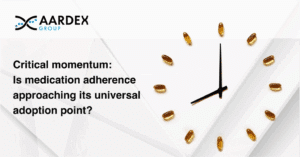FEB-2016 : High-fidelity measurement of patients’ medication adherence: A missing link in precision medicine
Abstract
Patient nonadherence to prescribed medicines is endemic and thus a central issue in the quality and economics of ambulatory medical care and drug trials. To be efficacious, a course of drug treatment must have a timely initiation, and treatment persistence is required for an evidence-based period of time. Precision medicine is currently facing additional requirements where, for most therapeutic areas under investigation, the drugs’ therapeutic windows are narrow. These are pre-conditions for identifying optimal dosage regimens that best balance safety and efficacy, and require precise implementation of the dosing regimen for optimal outcomes of treatment. Yet adherence research shows wide variability in ambulatory patients’ timing and taking of doses, relative to protocol-specified, or label-specified, dosing regimens, thereby creating a major source of variance in drug exposure.

This situation points to the need for adherence-informed research in which exposure to the test drugs is measured with high fidelity to assess dose-dependent effectiveness. Non-intrusive, reliable, and continuous assessment of patient adherence can be achieved by automatic compilation of drug dosing history data using electronic detection methods with conventionally designed drug packages (“smart packages”). The resulting data provide dosing histories, which allow one to identify crucial errors in dosing that can jeopardize treatment outcomes, and can, in turn, be used to focus intervention to achieve precise implementation of, and long-term persistence with, the dosing regimen that is optimal for each drug being prescribed or studied.



